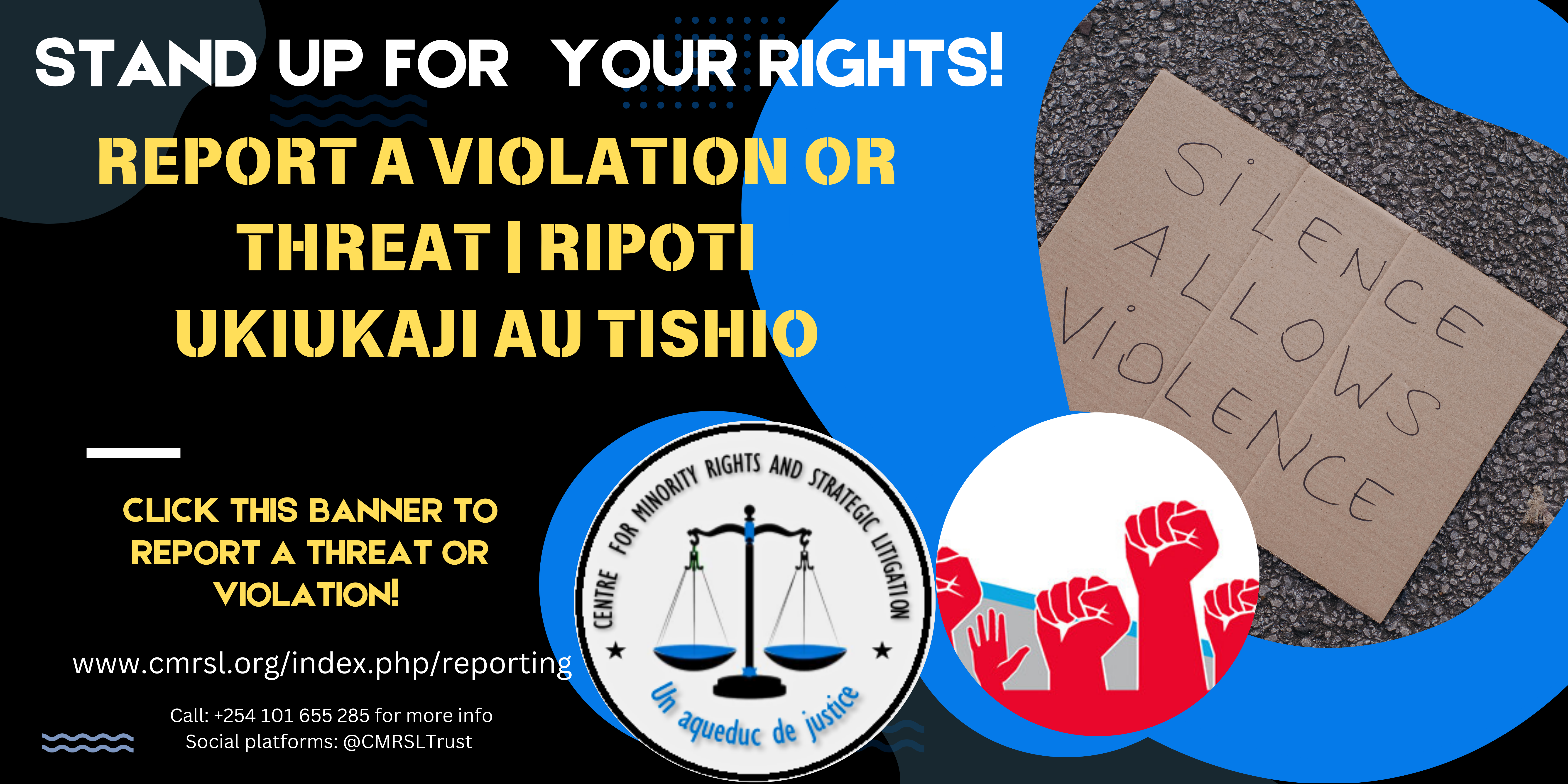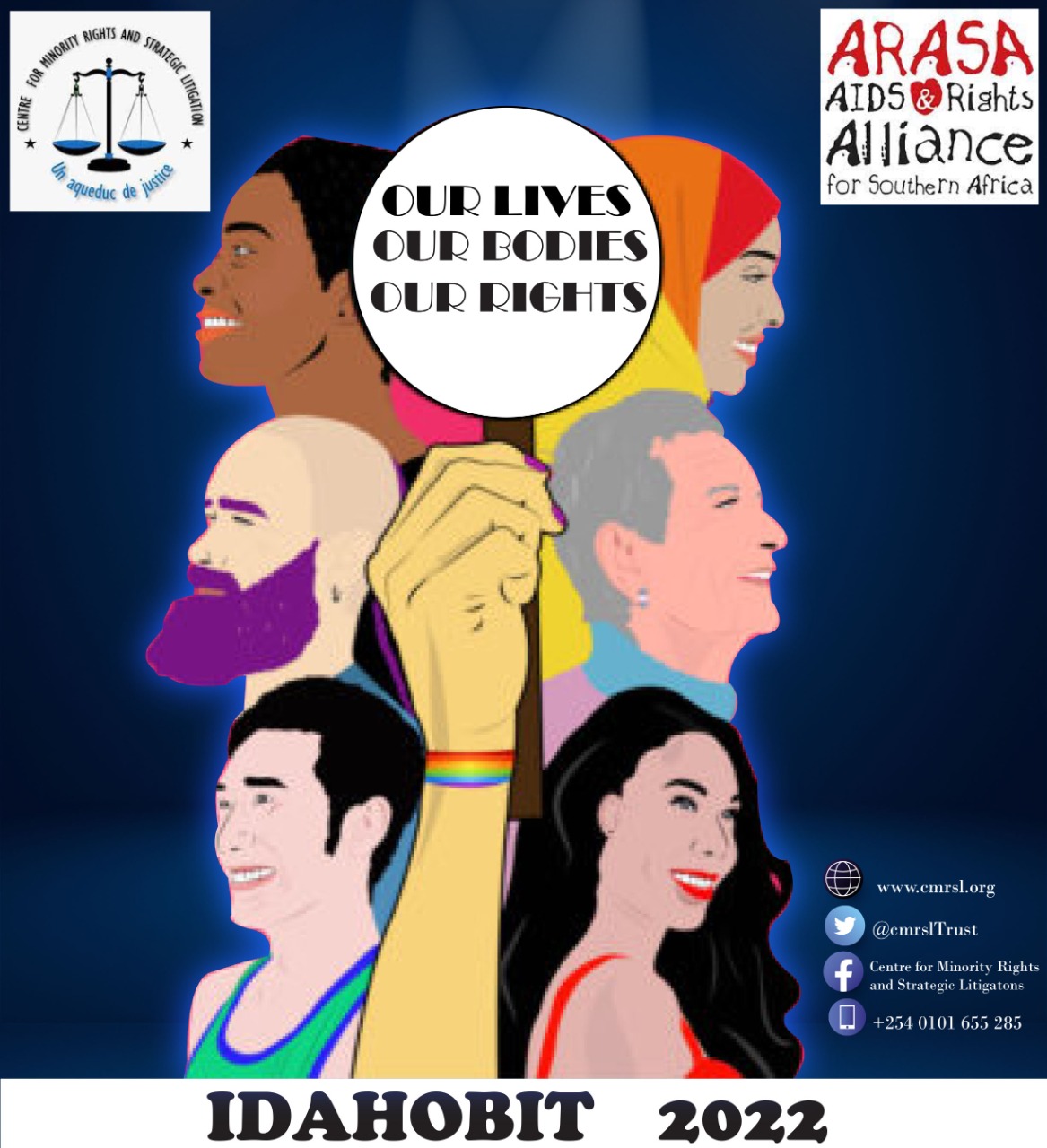International Day Against Homophobia, Biphobia, Intersexism and Transphobia.
It’s celebrated internationally on 17th May every year. Human rights activists, LGBTIQ community and LGBTIQ allies use this day to raise awareness on discrimination, abuse, and repression of people who identify or are perceived as being lesbian, gay, Bisexual, transgender and intersex worldwide. The multiple and ongoing instances of violence against those who are or express themselves in “non-normative” ways are acknowledged. This violence ranges from existence of discriminatory clauses in the legal framework to institutional incapability to record preferred names, from rejection to unfair dismissal from employment on sexual orientation and gender identity basis, from institutionalized stigma and discrimination to murder.
This year’s IDAHOBIT, commemorated under the theme “Our Bodies, Our Lives, Our Rights.”, stands for and works toward rights and choices for all. In collaboration with the AIDS and Rights Alliance for southern Africa (ARASA), CMRSL will be celebrating IDAHOBIT 2022 by hosting legal aid clinics to LGBTIQ+ victims of human rights violations, which can be accessed from anywhere, by clicking here CMRSL Virtual Legal Aid Clinic and running social media campaigns. The objective of this joint campaign is to link LGBTIQ victims of human rights violations to legal counselling and resdress system, raising cognizance of violation, stigma and discrimination of LGBTIQ community such as subjecting LGBTIQ persons to “normalizing” medical interventions e.g. surgical procedures and conversion therapies; call out transphobia, cissexism and discrimination against transgender persons; condemn murders and physical assault of individuals due to their real or perceived gender identities and sexual orientations; and advancing human rights for LGBTIQ persons by advocating and lobbying for inclusion of LGBTIQ community needs in international, national and county policies and legal frameworks.
LGBTIQ movement organizing and activism around the world has made huge steps to secure protections for individuals of diverse sexual orientation and gender identities in recent decades, especially in the realm of equality. Yet in many countries, LGBTIQ individuals still face repression, imprisonment, and even the threat of death. The existence of discriminatory laws within the legal framework is the major contributor to homophobia, transphobia, biphobia and human rights violations targeted against the LGBTIQ community.
Individuals born with intersex variations are routinely subjected to “normalizing” medical interventions, often in childhood. There are few protections from mutilation and non-consensual medical interventions and no legislative protection for intersex persons from this and other kind of violations of their rights. Intersex persons may have difficulties in obtaining birth certificates and others forms of documentation. Activism to include intersex as a third gender has however born fruits in many parts of the world, e.g., Kenya being the first country in Africa to recognize intersex citizens persons as a third gender in the 2019 census and collect data on intersex was an impactful stride towards promoting inclusion in the society.
Homophobia, Biphobia and Transphobia are terms used to describe the fear and/or dislike for someone, based on prejudice or negative attitudes, beliefs or views about people who are or are perceived to be lesbian, gay, bisexuals, transgender, intersex and queer. It takes many different forms. Sometimes it takes the form of physical acts of hate, violence, verbal assault, vandalism or blatant discrimination, such as firing an employee, evicting someone from their housing, or denying them access to public accommodations based solely on their sexual orientation or their perceived sexual orientation. There are many other kinds of homophobia and heterosexism that happen every day. We often overlook these more subtle actions and exclusions because they seem so insignificant by comparison but they are not.
Myths and Misinformation
Stereotypical perceptions about LGBTIQ persons are acquired, generally, through lack of firsthand familiarity. This breeds myths, misinformation and misconceptions around the LGBTIQ community. Negative stereotypes are often associated with homophobia, biphobia, or transphobia which leads to discrimination and stigma of individuals who affirm lesbian, gay, bisexual, transgender intersex and queers gender identities and sexual orientations. The first step in the campaign to reduce stigma and discrimination of LGBTIQ persons in Kenya and on a worldwide scale starts with unpacking the misinformation harbored by general population about LGBTIQ persons, this means engaging the community with information that raise awareness on LGBTIQ issues with the objective of changing attitudes of general community and to change the equality narrative for LGBTIQ community.
Let’s have a look at some of these myths…
- Being an LGBTIQ is a result of influence.
LGBTIQ people have existed in every documented society and culture in human history. Recently LGBTIQ persons have been coming out more and talking about their lives, and more attention has been focused on their issues. Breaking the silence is an important part of securing safety for LGBTIQ people.
- Transwomen are not real women or trans men are not real men.
Transgender people are really the gender they identify as, and usually have been so their whole lives. In sociology of gender, distinction is drawn between sex and gender. Normally, differences between men and women are often drawing on sex – ideas of biology whether it be through a focus on chromosomes, genitalia or some other physical ascription – rather than gender, which is an understanding of how society shapes our understanding of those biological categories. Gender is a social construct and is more fluid – it may or may not depend upon biological traits.
- People who consider themselves bisexuals are going through a phase, or they are confused, undecided, or fence-sitting. They’ll realize that they’re actually homosexual or heterosexual.
Bisexuality is a legitimate sexual orientation. Some people go through a transitional period of bisexuality on their way to adopting a lesbian/gay or heterosexual identity. For many others bisexuality remains a long-term orientation. For some bisexuals, homosexuality was a transitional phase in their coming out as bisexuals. Many bisexuals may well be confused, living in a society where their sexuality is denied by homosexuals and heterosexuals alike, but that confusion is a function of oppression.
- Being intersex is a condition that needs to be corrected
Many intersex children undergo surgery in an effort to ‘normalise’ them – even though these interventions are often invasive, irreversible, and not performed for emergency reasons. Although doctors and parents may be well meaning, the reality is that the procedures performed on intersex children can cause major problems, including infertility, pain, incontinence and lifelong psychological suffering. All this just to make children conform to society’s idea of what a girl or a boy ‘should’ look like.
Homophobia, Biphobia, Intersexism and Transphobia is hurting our society
Homophobia biphobia and transphobia are the causes many forms of oppression against individuals of diverse gender identities and sexual orientations. Even though the effects of oppression differ qualitatively for specific target and agent groups, in the end everyone loses. The stigma and discrimination:
- Locks people into rigid gender-based roles that inhibit creativity and self-expression.
- Compromises human integrity by pressuring people to treat others badly, actions that are contrary to their basic humanity.
- Prevents some LGBTIQ people from developing an authentic self-identity and adds to the pressure to marry, which in turn places undue stress and often times trauma on themselves as well as their heterosexual spouses and their children.
- Inhibits appreciation of other types of diversity, making it unsafe for everyone because each person has unique traits not considered mainstream or dominant. We are all diminished when any one of us is demeaned.
Join the campaign against Homophobia, Biphobia, Intersexism and Transphobia
By challenging homophobia, biphobia and transphobia people are not only fighting oppression for specific groups of people, but are striving for a society that accepts and celebrates the differences in all of us. The campaign to nurture a society that embraces equality, observes human rights and uphold human dignity is important in securing protections for LGBTIQ persons. Anyone and everyone are encouraged to take part in the campaign by taking note of the attitudes toward this vulnerable community and taking steps in changing these societal attitudes.
Start here:
- Think outside the box. Get in the know about sexual and gender diversity; it’s heart-pumping and mind-blowing. Find a guide to gender identity and sexual orientation here LGBTIQ-glossary-ally-learn-language
- Don’t make assumptions. Everyone is not the same! The acronyms, flags, colours and naming makes it very clear that “queers” are both everywhere and different.
- Refuse and call out violence in all its forms. No matter how small the act, it harms people and communities. There is no place for violence against anyone.
- Adopt a “queer” lens. The world is much more colourful when you take away the darkness of bigotry, harassment, homophobia, biphobia, intesxism and transphobia. If you see it, refuse it, question it, speak up, stand up, ACT UP.
- Become an ally.
Turn up for yourself and for others, be visible, and stand in solidarity against homophobia, biphobia, intersexism, and transphobia.
Happy IDAHOBIT 2022!

